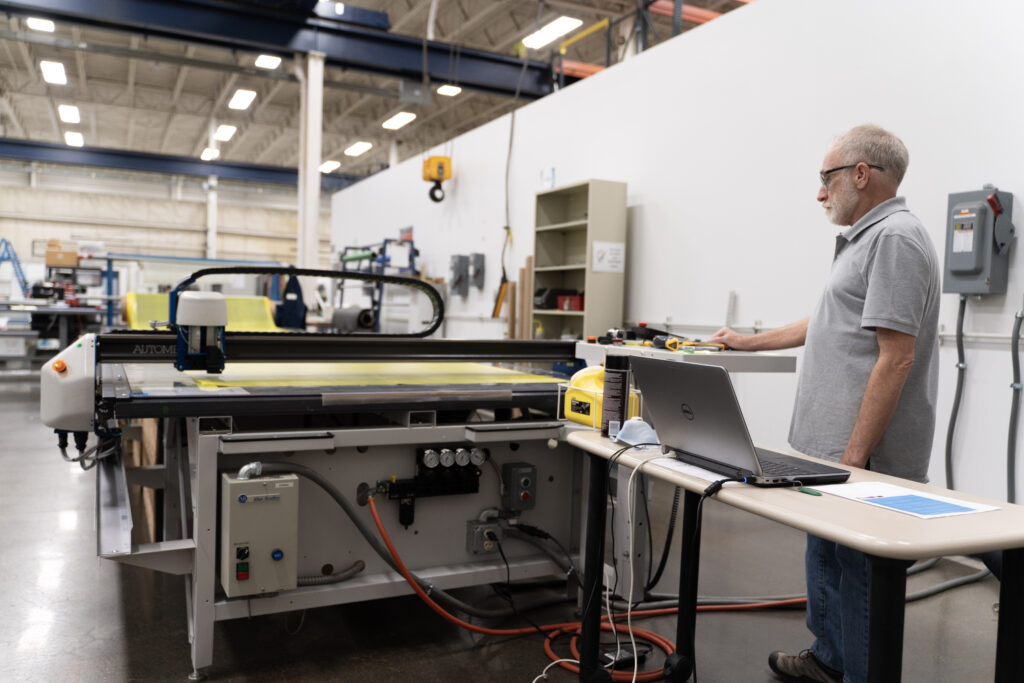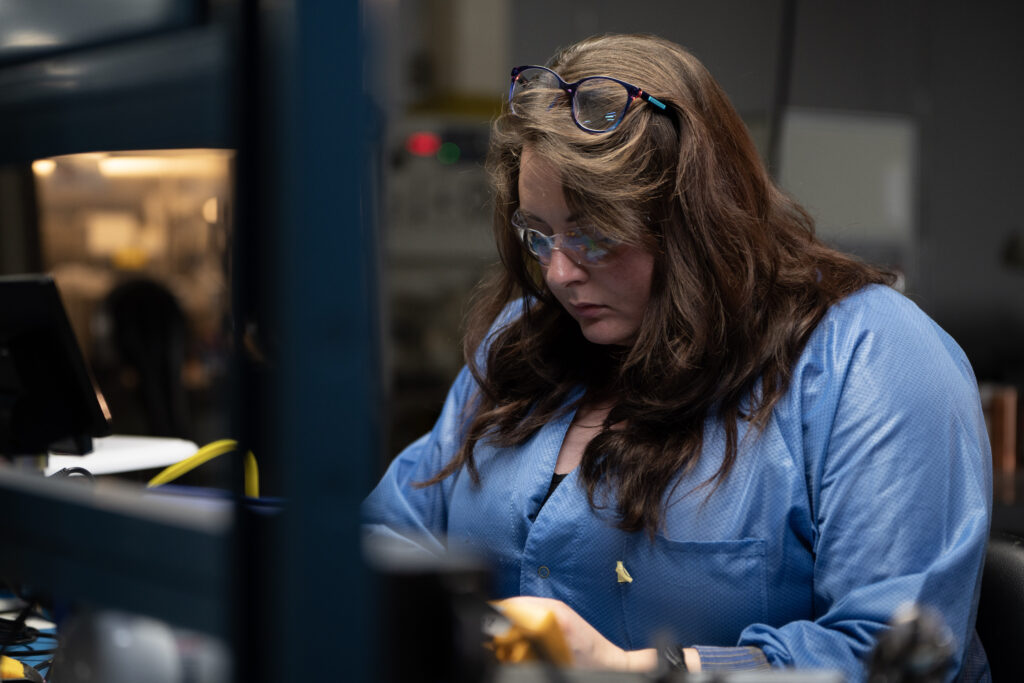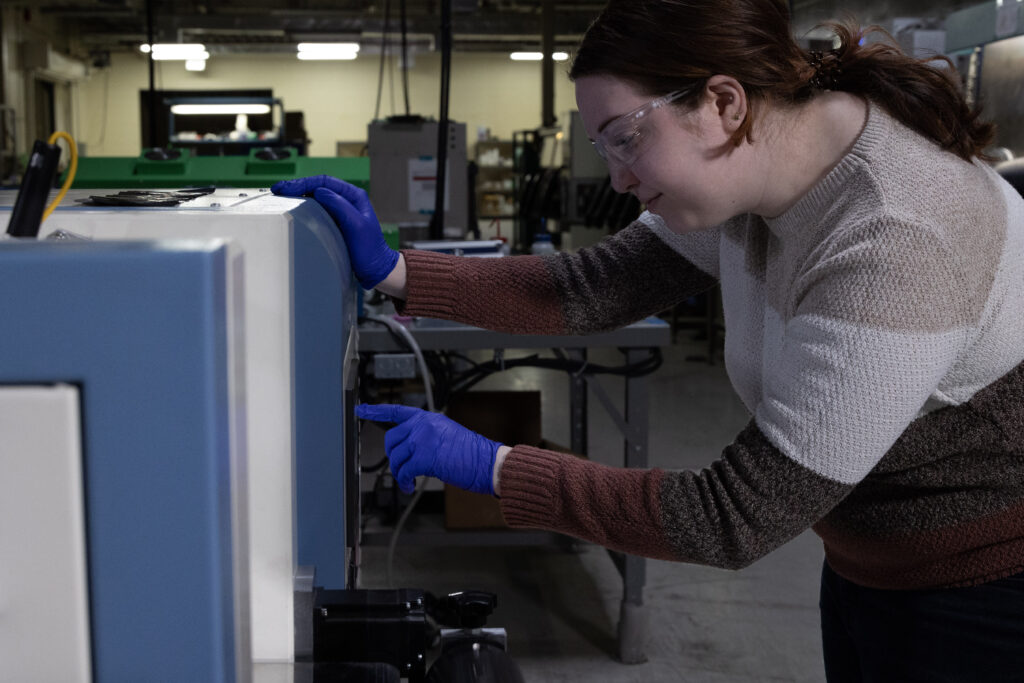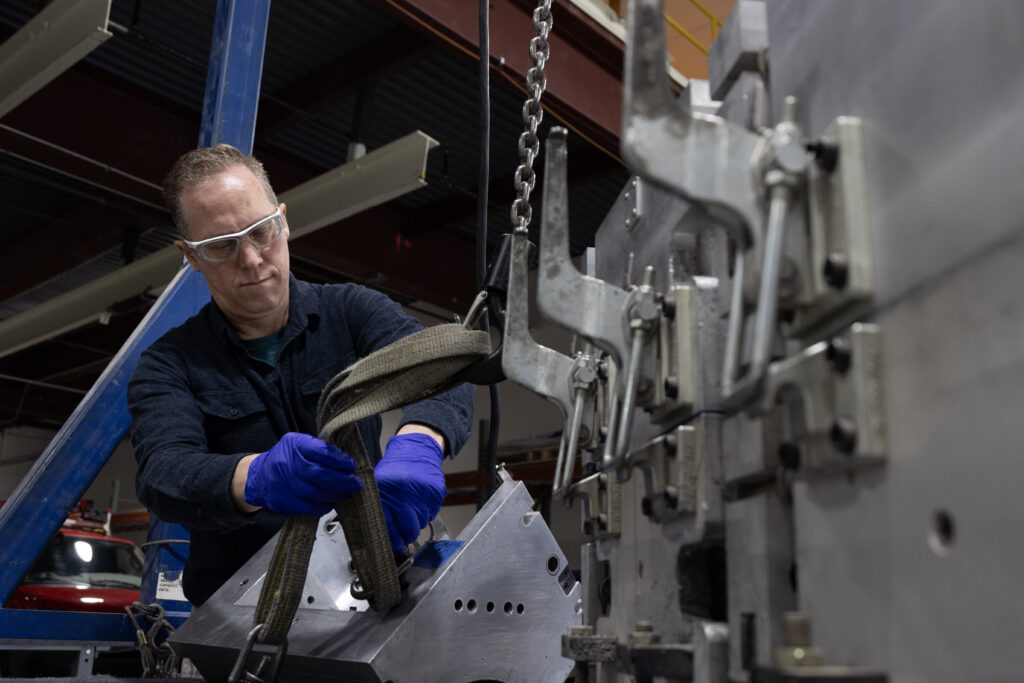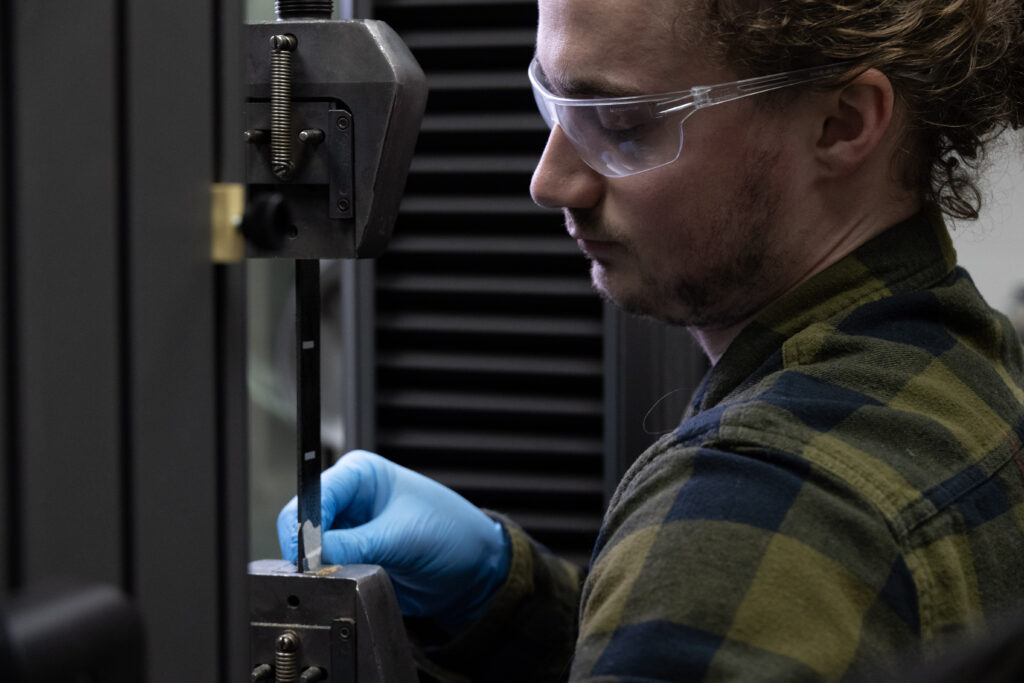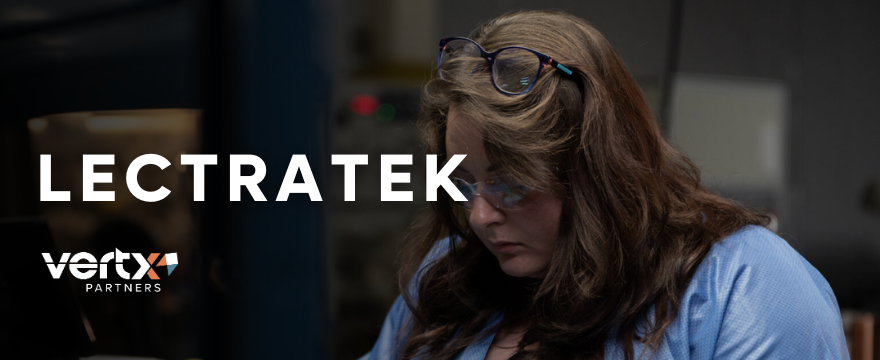
Lectratek is poised to advance the eAviation supply chain. Discover the steps they’ve taken to grow and how Vertx Partners is helping companies like Lectratek succeed.
The Dayton, Ohio-based Lectratek, LLC is a melding of Vertx Partners’ interests: they are a relatively small company utilizing federal funding to design and produce an array of Advanced Air Mobility (AAM) components. Their proprietary technology has put Lectratek on the map and moved them closer to enabling eAviation efforts, codified in their unofficial tagline: “We don’t make airplanes; we make them fly further.”
Lectratek spun out of Cornerstone Research Group’s (CRG) Rushlight Ventures studio at the tail-end of 2020. It was instantly identified in a lineup of startups to watch in the coming year, a prediction that has proved prophetic considering its success as a company that is easy to work with and has a bright future.
Lectratek’s Technological Breakthroughs
The secret to Lectratek’s success lies in its compartmentalization strategy. “The theory behind Lectratek is one of enabling the airframers who are trying to create electric aircraft,” says President of Rushlight Andrew Cothrel. “We’re trying to position Lectratek as a solutions provider for powering electric aircraft.”
Rather than creating radically new aircraft wholesale, the Lectratek team facilitates a broad swathe of innovation by acting as a supplier for this burgeoning industry. “Airframers are these designers coming up with cool, innovative designs like something out of The Jetsons,” says Chrysa Theodore, Vice President of Venture Operations at Rushlight Ventures. “Lectratek actually has hardware that can make those designs jump off the page to become working, 3-D, and real.”
“We have the quietest propulsion system, as far as I know, in the world that can operate and produce power,” says Cothrel, describing the innovations that prime Lectratek to top this emerging market. “Our motor controllers are also unique in that they are designed for electric aviation to drive those propulsors.”
A crucial component in eAviation is the production of reliable and efficient batteries. Though battery failures generate negative headlines all too often in the world of electric vehicles, Lectratek has answers for that as well: “When it comes to batteries, where we differentiate ourselves is low-temperature performance, and our batteries are fault-tolerant, which means they’re much less likely to ever catch fire,” Cothrel says.
Lectratek’s batteries are a miniaturization of its compartmentalizing ethos, as their engineers designed them with redundancies that allow the battery to keep functioning past critical damage to one of its components. In addition, Lectratek has devised a proprietary resin that safely contains the blaze in the unlikely event of a fire. “It’s like an extra layer of insurance if there’s a fire,” says Cothrel.
Lectratek’s Partnerships & Business Strategy
Lectratek’s technology is one of many factors that set it apart. The company’s unique relationship with Rushlight and CRG distinguishes it as well.
“A lot of startups are out on an island; they’re isolated, working on their own thing, trying to move it forward,” Chrysa Theodore explains. “We’re backed by Rushlight assets and have the technical expertise from CRG, whom we license the tech from. Instead of an island, we’re creating an ecosystem that is well supported; it’s a different kind of startup.”
This arrangement removes the typical risk of a startup while still ensuring the cutting-edge breakthroughs industries like the eAviation market rely on.
“Lectratek is a portfolio of technologies that CRG has been working on for quite a while,” says founder Dr. Patrick Hood, who recognized the potential to package this portfolio under the Lectratek umbrella. “We’re wide open in how we approach getting a return on an investment.”
But while financial and technical backing is essential, Theodore believes it’s only a piece of the puzzle. “Lots of companies have great technology, but if you’re not connected to the market space, you’ve basically got great technology that’s sitting on your shelf,” she says. “So, having a partner that has relationships in the market you want to get into is so valuable.”
Dr. Hood describes how, when he moved to the Miami Valley in the ’90s, no one knew what he knew about SBIRs, DCAA compliance, or how the DoD goes about technology development. “One of the elements of the ecosystem would be someone like Vertx to be able to help other new companies get started,” he says. “Anybody who can help bridge that gap into the base is very valuable to a small business and a new startup.”
Lectratek & Vertx Partners
The federal contracting ecosystem pioneered in the Miami Valley by Dr. Hood through CRG and its spinoffs parallels the efforts of Vertx Partners in Appalachia.
“For a company like Lectratek working with Vertx in business development, one of the hardest steps is to get the message in front of the right people on a timely basis,” says Andrew Cothrel. “Vertx has the potential to really accelerate that because of their vast network of relationships.”
Cothrel believes, like Theodore, that Lectratek’s success is owed partially to knowing the right people in the right market. He also believes that Vertx helps to fulfill that role for companies that need assistance finding funding.
“I think Vertx has found and is filling a really unique and high-value niche, both in the companies it’s partnering with and the Air Force,” explains Cothrel. “It’s a classic win-win.”
Dr. Hood also recognizes partnership as a critical element of CRG’s success, noting how growth expanded when the company pivoted away from trying to accomplish everything internally and began partnering. “That’s because we are consciously partnering with people who are better than us at the things we need help with,” Dr. Hood says. “Partnering has been a focused part of our strategy to help grow our company.”
Vertx Partners offers its services as a facilitator between private businesses and public clients like the Department of Defense – clients interested in what those businesses provide. Cothrel describes Vertx as “the bridge into the Air Force,” a moniker that fits the company well in its public-private mediations.
Vertx and its strategies, similar to CRG’s diversification, have proven helpful to small and nontraditional Appalachian businesses looking for a leg-up in federal contracting. Vertx helps companies like Lectratek to commercialize their groundbreaking technology; Lectratek is now poised to revolutionize the supply chain of the eAviation market.
“For a small startup without reputation or its own network, making sales is hard,” says Chrysa Theodore. “That’s how Vertx can be very helpful.”

